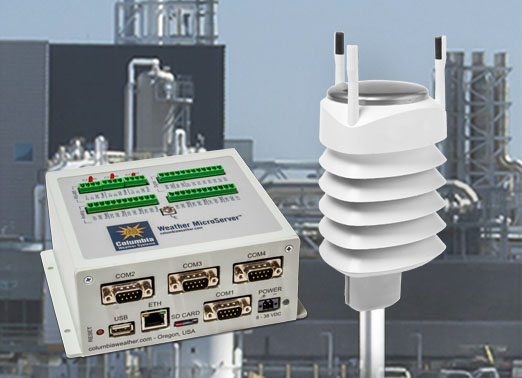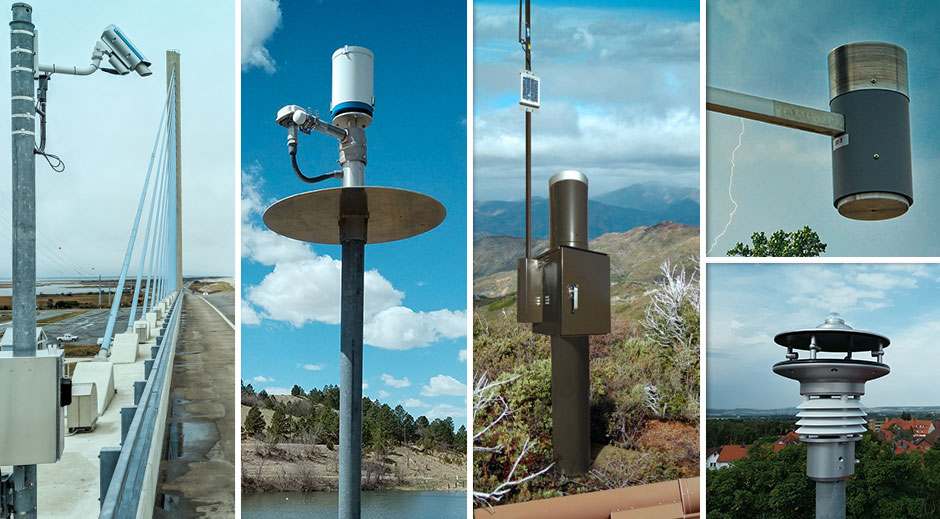Discovering the Various Types of Specialist Weather Terminals for Accurate Data Collection
As specialists in the field of weather forecasting and ecological scientific research, the demand for accurate climate information is critical for notified decision-making and study. When it pertains to choosing the appropriate climate terminal for information collection, the market offers a range of alternatives tailored to different demands and settings. From electronic and cordless stations suitable for home use to prosumer and industrial-grade terminals designed for much more innovative applications, the variety of choices can be overwhelming. Comprehending the capabilities and attributes of each type is necessary for guaranteeing precise and dependable information collection. Allow's discover the subtleties of these professional weather stations to understand their special capabilities and establish the most effective suitable for specific data collection demands.
Digital Climate Stations
In the world of meteorological instrumentation, digital climate stations stand out as sophisticated tools for specific information collection and evaluation. These innovative terminals are outfitted with sensing units that record a variety of weather condition criteria such as temperature level, humidity, barometric pressure, wind rate, and direction. The data accumulated by electronic weather condition terminals is sent wirelessly to a main console or a computer for real-time monitoring and evaluation.
One of the crucial benefits of electronic weather condition terminals is their capability to supply high-resolution information with accuracy and dependability. This level of precision is vital for numerous applications, including agriculture, emergency situation, research study, and aeronautics reaction. Additionally, electronic weather condition stations usually come with software application that allows customers to picture the information in different styles like graphs and charts, facilitating simpler interpretation and decision-making.
Wireless Weather Condition Stations
Building on the capacities of digital weather condition stations, wireless climate stations offer enhanced comfort and versatility in data transmission and monitoring. By using wireless innovation, these weather condition terminals eliminate the demand for troublesome wired connections, enabling simple setup in various places. The wireless feature allows real-time information tracking from remote areas, giving meteorologists and weather lovers with instant access to important info.
Wireless climate stations usually include sensing units that accumulate data on temperature level, moisture, barometric pressure, wind speed, and direction. These sensing units wirelessly transmit the information to a main console or receiver, where it is processed and presented for analysis. Some advanced wireless climate stations can also connect to the internet, permitting individuals to access their weather condition information remotely through computer systems or smartphones.

Prosumer Climate Terminals
What identifies Prosumer Weather condition Stations from standard consumer-grade climate stations? Prosumer Climate Stations bridge the space in between consumer-grade and professional-grade tools, using more advanced features and greater precision than common home climate terminals. These terminals are designed for weather fanatics, amateur meteorologists, and local business that call for even more accurate information than what customer designs can offer.
Prosumer Climate Stations typically include a larger range of sensing units to determine added meteorological parameters such as UV index, fallen leave dampness, and soil dampness. They also tend to have a higher degree of longevity and integrity, making them suitable for lasting outside use in numerous ecological problems.


Industrial Climate Stations
Industrial Weather Stations, additionally understood as atmospheric surveillance systems, are specialized tools developed for durable and precise climate data collection in industrial settings. These terminals are customized to meet the special demands of commercial procedures where accurate climate information is important for safety and security, effectiveness, and decision-making procedures.
Industrial climate stations are equipped with advanced sensors that can gauge a variety of meteorological specifications such as temperature, humidity, wind speed and direction, barometric pressure, and rainfall (Weather Stations). These terminals are often ruggedly developed to hold up against extreme ecological problems commonly discovered in commercial environments
One key attribute of industrial weather condition stations is their ability to offer real-time data surveillance and evaluation. This enables industrial facilities to prepare for weather-related risks, maximize operations based upon climate condition, and make sure the safety and security of personnel and equipment. Furthermore, commercial climate stations can be incorporated right into existing commercial control systems for smooth information monitoring and automation.
Mobile Weather Terminals
Unlike fixed industrial weather stations, mobile climate terminals provide adaptability and mobility for on-the-go information collection in different environmental setups. These small devices are made to be conveniently More Help transferred to different locations, making them suitable for field research, emergency situation response scenarios, farming, construction websites, and outside occasions.
Mobile weather condition terminals generally include sensing units for measuring specifications such as temperature, humidity, barometric stress, wind rate, and wind instructions. Some advanced designs may also include additional sensing units for keeping track of rainfall, solar radiation, and UV degrees. In spite of their little size, mobile climate terminals are qualified of providing exact and trustworthy information equivalent to that of larger, repaired stations.
Among the key benefits of mobile climate terminals is their fast release and simplicity of configuration. They can be functional within mins, enabling for rapid data collection and evaluation. In addition, these stations can be set to send real-time data wirelessly, making it possible for customers to check and assess ecological conditions from another location. Overall, portable climate terminals are important tools for experts calling for mobile, exact, and prompt weather condition information in diverse settings.
Conclusion
In verdict, professional weather condition terminals come in different kinds such as electronic, cordless, prosumer, industrial, and portable. Each kind offers one-of-a-kind functions and capacities for exact information collection. Selecting the appropriate weather terminal relies on the details requirements and demands of the user. By recognizing the differences in between Clicking Here these kinds of climate terminals, people can make enlightened choices to ensure they get the most precise and trustworthy weather information for their functions.
Structure on the capacities of electronic weather condition stations, cordless weather terminals use improved benefit and flexibility in data transmission and surveillance. Some advanced wireless weather stations can also connect to the web, enabling individuals to access their weather condition information from another location using mobile phones or computer systems.
Prosumer Weather Stations bridge the gap between consumer-grade and professional-grade equipment, offering more sophisticated attributes and higher accuracy than typical home climate stations. Weather Stations. On the whole, portable weather condition stations are very useful devices for specialists requiring mobile, accurate, and prompt weather condition details in diverse settings
By understanding the distinctions in between these types of climate terminals, site web individuals can make educated choices to guarantee they get the most reliable and specific climate data for their objectives.